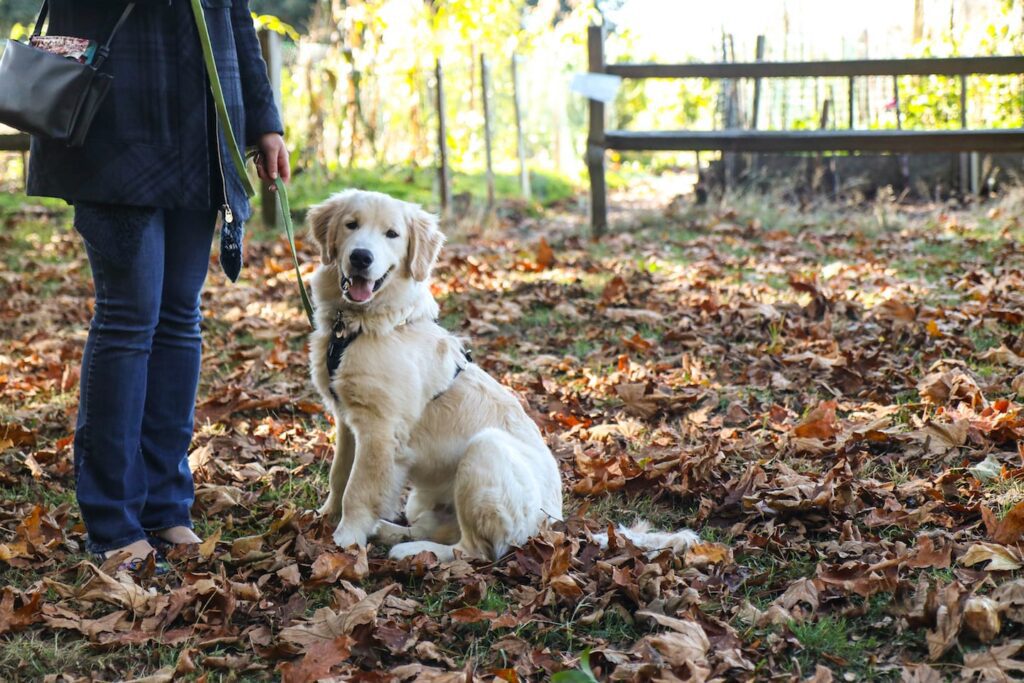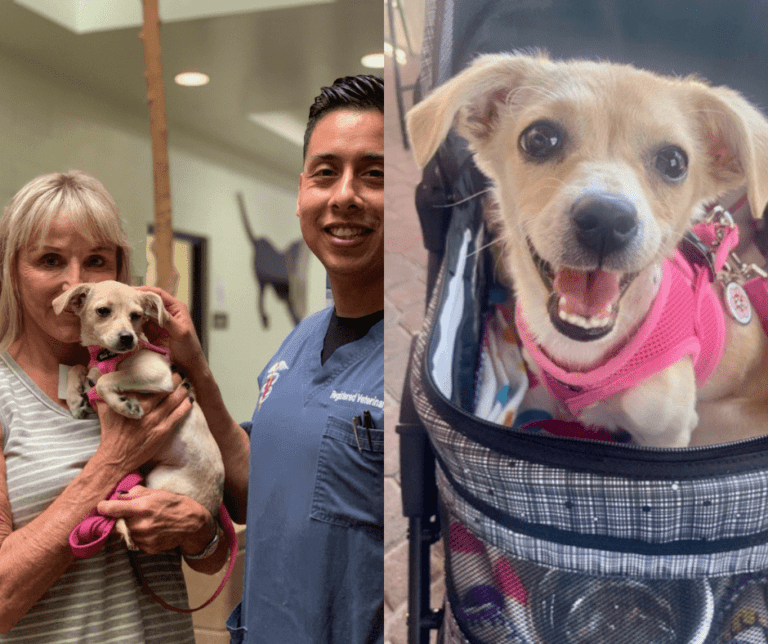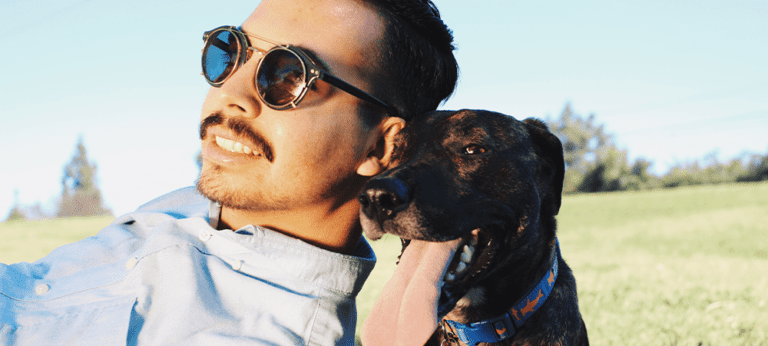How to Transition from Puppy Pads to the Great Outdoors

Puppy pads can are so useful when training puppies. And oh how we love puppies! They’re soft, cute, playful and… don’t know how to go to the bathroom properly. Housebreaking a new puppy isn’t exactly fun and can be pretty challenging for a new dog owner, but with a little know-how and some patience, your dog will be a pooping pro in no time! Check out these tips for teaching a puppy how to graduate from puppy pads to the great outdoors.
How to Use Puppy Pads
Some people start housetraining with indoor puppy pads or newspapers. There are various reasons to do this, but the most common is that a young puppy, without a full set of vaccinations, shouldn’t be taken outdoors in an area where he could come into contact with germs that could lead to a potentially deadly virus such as the parvovirus. When a new dog owner lives in an apartment or does not have a private yard, this is often the best option for keeping their new puppy safe.
Once a puppy has his shots and is a little older, many owners decide to transition from pads to the outdoors. These owners have already taught their dog housebreaking 101, that he cannot go wherever he pleases, so that is a good first step. The key to a successful potty training experience is that you must be consistent and patient. If you aren’t consistent and patient, it will be very difficult for your dog to understand what you are trying to communicate and what you expect from him. This will just frustrate the both of you.
Start by moving the pad next to the door that you will use to take your dog outside. Make sure that your dog sees where his pad has been moved. If this is too drastic, you can start by slowly moving the pad progressively closer to the door. When your dog goes to the pad to eliminate, quickly pick him up and bring him outside. For some dogs, it is helpful if you bring the pad outside as well so that they can better understand what you are trying to communicate. While your dog is eliminating, pick a phrase like “potty time” or “do your thing” and repeat it. That way, you can simultaneously train your dog to go on command (which comes in handy when you are in a hurry or on rainy days!). Make sure to give plenty of praise and treats.
In the initial stages of training, it is important to constantly monitor your dog so that you can catch him in the act and quickly bring him outside. By correcting behavior as it is occurring, your dog will learn what you want from him. Correcting a dog for an accident that occurred after the fact will not teach him anything, since dogs are not able to connect what you are trying to communicate. Yelling or rubbing his nose in the mess will simply make him fearful and will damage your relationship. Although it can be difficult not to get upset when you notice a mess, the best way to handle it is to just accept it and clean it up. When cleaning, make sure you use an enzymatic cleaner that will remove the scent. A spot that smells like urine to a dog will only cause him to continue eliminating in that same spot.
Other Important Tips
It is important to constantly supervise your dog when you first start this process. If you have to leave for a bit, try putting him in a crate or confining him to small room, like a kitchen, with a baby gate. Generally, dogs will not eliminate in close quarters unless they cannot hold it any longer. When you get home, take your dog outside immediately before he has the chance to have an accident and give him plenty of praise when he goes. When you are home, supervise your dog constantly. If this is difficult, keep your dog on a leash so that he is always near you. Always take your dog out within 30 minutes of eating, as all dogs need to go soon after they eat. Look for the tell-tale signs that your dog may have to go such as intense sniffing, whining or pacing.
Remember, if you are consistent and patient, it will pay off. Focus on praising your pup when he does what you want and try to catch him in the act and correct him instead of scolding after the fact. Use this as an opportunity to bond with your new family member and set the stage for a lifetime of trust and respect.


